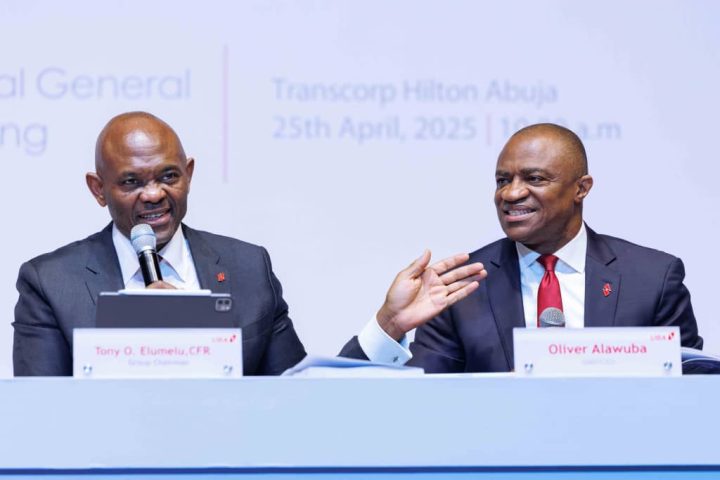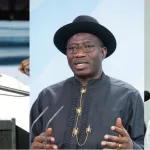The Centre for the Promotion of Private Enterprise, CPPE, says it stands with President Ahmed Bola Tinubu on the Executive Orders which the president recently signed.
The Executive Orders cover the following:
Join our WhatsApp Channel- Suspension the Excise duty escalation contained in the 2023 Fiscal Policy Measures imposed by the previous administration.
- Suspension of Green Tax on some categories of vehicles.
- The deferment of the effective date of the Finance Act 2023 and some customs tariffs. This was to ensure compliance with the mandatory 90 days’ notice prescribed in the National Tax Policy as well ensure reasonable notice for customs tariff reviews.
Chief Executive Officer of CPPE, Muda Yusuf, in a mail he sent to Prime Business Africa on Sunday July 9, 2023 said:
“We commend this move to normalize policy implementation processes consistent with the national tax policy and best practice principles. The executive orders also demonstrate the sensitivity of the Tinubu administration to the predicament of the manufacturing sector amid overwhelming headwinds and hassles to real sector activities in the Nigerian economy. “
Recall that PBA had, in its widely read column – “Prime Business With Dr Marcel Mbamalu” – on Sunday examined the many woes of Nigerian manufacturers in relation to access to funds and multiple taxation, and called for a more intentional approach by banks and their regulator, the Central Bank of Nigeria.
CPPE, while commenting on the Executive Orders, which incidentally focus on taxation and the Finance Act 2023, agreed that Nigeria’s “manufacturing sector is a troubled part of the economy,” noting that the sector’s growth slowed to 1.6% in the first quarter of 2023, from 2.8% in the fourth quarter of 2022 having contracted by 1.9% in the third quarter of 2022.
“It barely contributes 10% to the Gross Domestic Product [GDP] in the first quarter of 2023,” CPPE observed.
Major Challenges of Nigeria’s Manufacturing Sector
Nigeria’s manufacturing sector, according to the CPPE, is grappling with the following, among others:
- Challenges of depreciation in the exchange rate which is impacting adversely on the cost of production, a situation which is severely inhibiting production and productivity in the sector.
- Intense pressure on cost of production arising from numerous structural bottlenecks. This situation is creating sustainability challenges for investors in the sector, especially those in the SME segment. They have experienced significant spikes in the cost of raw materials, cost of fund, high import duty, elevated energy cost, prohibitive cost of transportation and high cost of logistics. A huge proportion of these costs cannot be passed on to the consumers because of high consumer resistance.
- The economy is currently characterised by weak purchasing power amid intense inflationary pressures and recent fuel subsidy removal. Disposable income has been considerably diminished. This is taking a huge toll on sales and turnover of many manufacturers.
- Many manufacturers are currently struggling with unfair competition, especially from products imported from Asia which have flooded the Nigerian market, largely because of the porosity of the borders. These imports are often much cheaper than goods produced locally.
- Energy costs remain high. Though the cost of diesel dropped slightly in the last one month, but still remains high at about N700 per litre. The cost of gas is also prohibitive just as in electricity tariffs remains exorbitant.
- The cost of logistics has continued to be on the upward trend. Some of the reasons for this are the states of the roads, the limited freight capacity of the railway system, the crisis situation at our major ports, the traffic gridlock around the Lagos ports, the numerous check points around the ports and beyond.
Additional Reliefs For Investors And Citizens – What CPPE is Saying
CPPE’s Yusuf noted that recent reforms, especially the fuel subsidy removal and the adoption of a market reflective exchange rate regime, have significant fiscal consolidation outcomes “very positive for the economy.”
“It would create ample fiscal space, reduce fiscal deficit, enhance social spending prospects to protect the vulnerable segments, and facilitate the stability of the macroeconomic environment. The good news is that all the three tiers of government would be beneficiaries of the increase in revenue – federal, states and local governments.”
READ ALSO: 10 Gains Of CBN’s Exchange Rate Unification – CPPE
Proposal On Additional Revenues
The CPPE proposes four dimensional channels of utilization of the resultant additional revenues
- The first is to commit part of the revenues to fill the holes created by the recurring fiscal deficit. This will gradually reduce fiscal deficit, and by extension, the growing burden of debt.
- The second channel is to increase the wages of public sector workers across all levels and in all tiers of government. This would mitigate current hardship inflicted by the fuel subsidy removal through an enhancement of their purchasing power.
- The third channel is to provide reliefs to the populace by giving generous import duty concessions on agricultural sector inputs and machineries, intermediate products for manufacturers which are not available locally, generous fiscal incentives for food processing companies to reduce the cost of staple foods, and scrapping of Import duty on industrial machineries and equipment. Other sectors deserving of tariff concessions are health, power generation, renewable power equipment, and machineries for petroleum refining.
- Import duty on 15-seater passenger buses and above should be slashed by 50%. This would make it possible for more corporate bodies, government agencies and commercial transport operators to invest more in the provision of mass transit buses for their staff and commuters. This would ease the burden of high transportation cost. Also Import duty on cars of 2000cc engine capacity and below should be similarly reduced by 50%. This would give relief to the middle class and improve the supply side of public transportation.
“We are confident these concessions would not materially affect the revenue of the government. If anything , it would reduce the rate of the smuggling of vehicles into the country,” the CPPE said
CPPE Opposes Tinubu’s Proposal To Collect VAT From The Informal Sector
Meanwhile, the Yusuf has advised the Tinubu administration against the decision of the FIRS to undertake VAT collection in the informal sector. It gave eight reasons for its position:
- The economics of collection does not support the move. The cost of collection would be much more than the amount that could be collected.
- Over 98% of the informal sector traders are microenterprises who do not fall within the threshold of entities that are liable for VAT payment.
- The informal sector associations are highly fragmented. It would be impractical to develop a partnership framework with the market associations for the collection as contemplated by the FIRS.
- Most informal sector operators have not recovered from the shocks of the fuel subsidy removal and the associated inflationary impact.
- Most informal sector operators have no records which could be used for purposes of assessment. There is therefore a high risk of arbitrary assessment.
- The literacy level of the operators in the sector is very low which would create communication issues.
- The political cost to the government will be very high.
- Most informal sectors are already paying all manner of levies to local governments, and several non-state actors. The government need not burden them with additional taxes.
On the way forward, Yusuf said the FIRS should think of more creative ways of taxing the informal sector players in ways that will be more cost effective, less disruptive and with minimal political cost.
“More importantly, the FIRS should adopt the pareto principle of focusing on the few players and individuals that could give the highest revenue yield. This is a model appropriate for an economy with high level of inequality like ours,” the CPPE CEO said.



















Follow Us